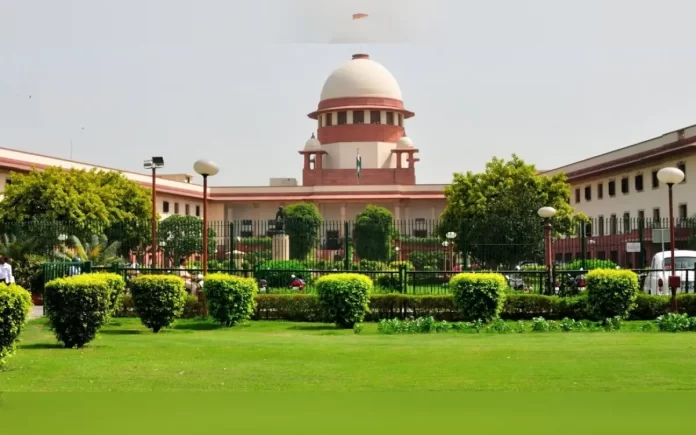New Delhi: In a startling revelation, it has come to light that 62 babies were born within the confines of West Bengal’s prisons over the past four years. Shockingly, most of the women inmates who gave birth were already pregnant upon entering incarceration, prompting serious concerns about the conditions in which they are held.
The Supreme Court recently took cognizance of distressing allegations regarding the pregnancy of several women prisoners in West Bengal while in custody, signaling a pressing need for investigation and reform.
Senior advocate Gaurav Agrawal, serving as an amicus curiae in the matter titled ‘Inhuman conditions in 1,382 prisons’, presented crucial information received from the Additional Director General and Inspector General of Correctional Services, West Bengal. Agrawal disclosed, “The undersigned has received information from ADG and IG correctional services, West Bengal on February 10, 2024, at 5:32 pm, regarding all child births in West Bengal jails over the last 4 years, amounting to 62 children.”
Disturbingly, Agrawal highlighted that a significant number of women detainees were already pregnant upon admission to the prisons. Some had even left on parole and returned while expecting, raising serious questions about the circumstances leading to these pregnancies.
The application submitted by Agrawal underscores the urgent need for scrutiny of prison conditions, particularly those affecting women. Reports indicating pregnancies among women inmates in West Bengal underscore the gravity of the situation and demand immediate attention.
Agrawal further elucidated his consultations with correctional authorities across different states to understand the security protocols and facilities available for female detainees. The revelation that certain facilities, such as Delhi’s Tihar jail, maintain separate spaces exclusively for women, underscores the importance of ensuring gender-sensitive and secure environments within correctional facilities.
The application calls for a comprehensive security audit of women’s jails and barracks nationwide, emphasizing the importance of proper medical examinations upon admission and periodic check-ups thereafter. Agrawal also proposes the formation of a specialized committee dedicated to addressing the unique challenges faced by women prisoners, distinct from the one addressing overcrowding.
The Supreme Court’s intervention in response to the alarming reports regarding pregnancies among women inmates in West Bengal prisons underscores its commitment to upholding human rights and ensuring justice for all. The assignment of Agrawal to investigate and report on these matters reflects a crucial step towards addressing systemic issues within the prison system.
In parallel, the Calcutta High Court’s decision to transfer a related matter to a criminal division bench further emphasizes the gravity of the situation and the need for comprehensive reforms. Lawyer Tapas Kumar Bhanja’s recommendations regarding restrictions on male staff access to areas designated for female prisoners highlight the importance of safeguarding women’s rights and dignity within correctional settings.
As the legal proceedings unfold, it is imperative that measures are taken to ensure the health, safety, and dignity of women prisoners in West Bengal and across the country. The protection of their rights and well-being is not just a legal obligation but a moral imperative that demands immediate action and reform.



